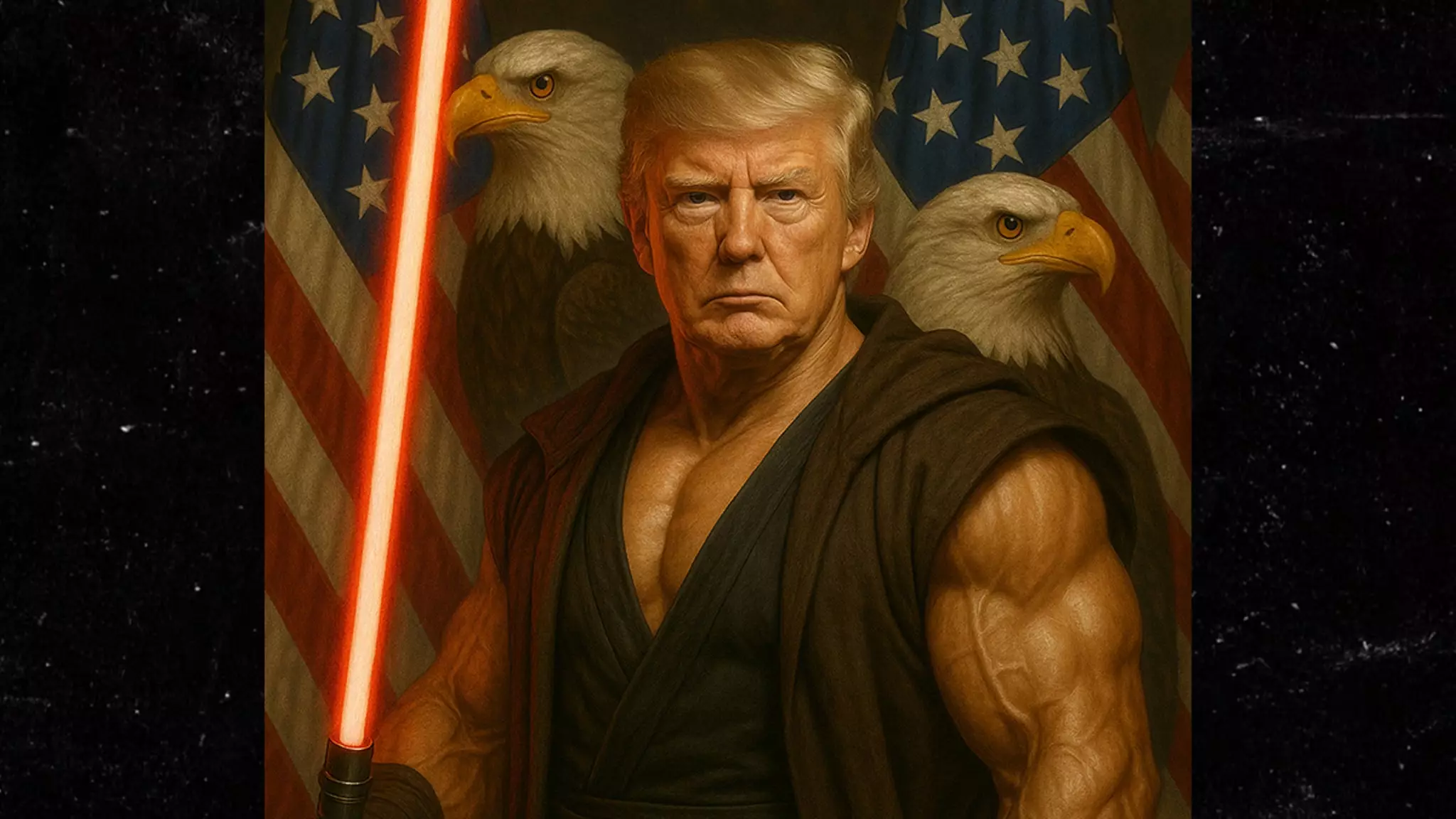Donald Trump’s administration has consistently walked a thin line between theatrics and reality, and the recent Star Wars Day celebration is no exception. In a display that could only be described as a convoluted blend of political bravado and pop culture, the White House shared an AI-generated image portraying Trump as a character from the Star Wars universe. This extravagant portrayal, featuring Trump adorned in a sleeveless cloak wielding a red lightsaber, sends a message that veers into the absurd. Instead of aligning with the traditional Jedi narrative, Trump seems to embrace a more authoritarian aesthetic, raising questions about the imagery and implications of such a representation.
The Emperor’s New Cloak
In this unique visual narrative, Trump’s choice of a red lightsaber might seem trivial, but it is laden with implications. Red sabers, synonymous with the Sith—the antagonists of the Star Wars saga—conjure a foreboding surge of power and ambition. The White House’s decision to adopt this imagery, particularly in a political landscape marked by controversy, suggests a conscious affiliation with the darker elements of power. Some supporters scrambled to rebrand it as an orange lightsaber, perhaps as a futile attempt to distance Trump from the ominous connotations. Yet, red is also entrenched in the Republican aesthetic, further complicating the perception of Trump’s affiliation with good versus evil.
Redefining the Political Culture
While the intention behind such a portrayal might have been to inject humor and relatability into Trump’s character, the underlying cultural connotations are profound. By steering the conversation toward an emblematic representation of authoritarianism, the image taps into a broader discourse around power, governance, and the American political narrative. George Lucas’s inspiration from totalitarian regimes when crafting the Galactic Empire highlights a deeply rooted cautionary tale that transcends fiction. Critics have not hesitated to liken Trump’s image to that of a villain, emphasizing the need for political discourse to move beyond frivolity and address the darker nuances of leadership.
Pointed Political Commentary
The White House’s caption accompanying the image is noteworthy for its overt disdain for political opponents, cleverly framing them as “the Empire.” The bizarre inversion of the traditional narrative—where the villain becomes the ‘hero’—is indicative of a wider trend in modern political dialogue, where enemies are painted in stark contrasts to reinforce tribal loyalty. The jab at the “Radical Left Lunatics” starkly contrasts with campaign rhetoric promoting unity, leaving many to question the authenticity of such posturing. This performative aspect of politics, whereby they manufacture conflicts, only serves to deepen the divisive chasm within the electorate.
Engagement with legendary figures like Mark Hamill also highlights the necessity for public figures to engage meaningfully with the realities presented by political commentary woven into cultural phenomena. As fans call for Hamill to weigh in, a broader conversation emerges about the responsibility of those in the entertainment industry to address the implications of political mimicry through pop culture.
In adopting narratives from a beloved franchise, the Trump administration’s portrayal serves as not just a satirical nod to Star Wars but as a precursor to deeper political reflections, revealing the complexity of modern-day governance where mythical metaphors become tangible reflections of leadership styles.

